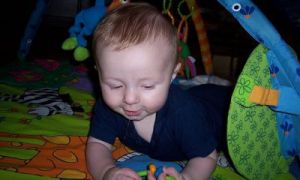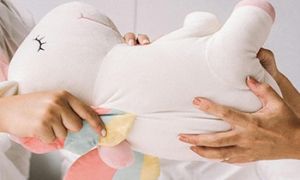

For Educators, one of the hardest tasks is getting children to listen. It may be easier for some but for others (especially Educators who are casual) it can be difficult to get the children to pay attention and to listen to your instructions.
When you've have accepted a job offer in service, it is fairly common that you will be put on a probation period. This is used to asses if you are suitable for the position and you meet the standards and expectation of your job responsibilities.
When writing a report on a child, it's an opportunity for the Educator to capture the child's learning and for parents to receive an account of their child's engagements within an early childhood setting. The following article provides information on examples of writing prompts and comments that can be used when writing yearly reports on the child.
As we come towards the end of the year, it's time to get ready to store the documents and records that have been made throughout the year, such as incident, injury, illness records, documentation relating to a child etc.. The National Regulations provides details on how long records and documents need to be stored and kept.
Spatial skills refer to the ability to see a two or three-dimensional objects or think in a way that relates to space and the position, area and size within it.
A new study from Macquarie University has found that Educators talk less to babies and toddlers ranging from 50 words per minute while some Educators only use 10 words per minute.
Learning Styles is simply how a child can learn successfully. The ability of how a child concentrates and stores or remembers new information is their learning style.
As an Educator, it's important to assess and document children's learning. This refers to gathering and analysing information about what children know, can do and understand. It is part of a cycle that includes planning, documenting and evaluating children’s learning.
It is now mandatory for Educators in Victoria to report suspicions of sexual abuse as part of Victoria's government's response to the child sex abuse royal commision.
As Educators working with children, it's important to understand each theoretical approach and use parts of different theorists in context. Each theorist’s ideas are independent of the other, but when put together, they give us a good overall understanding of how children develop as they age. The following is an overview of popular child theorists, a brief description of their theories and how to implement their theories into practice within the early childhood environment.
 Toddlers have a greater understanding of the world around them by this stage. Their cognitive development (also known as intellectual development and thinking skills) continues… Read More
Toddlers have a greater understanding of the world around them by this stage. Their cognitive development (also known as intellectual development and thinking skills) continues… Read More
 Infants begin to develop trust when parents begin to fulfil their needs. Such as changing an infant's nappy when needed, feeding on request and holding… Read More
Infants begin to develop trust when parents begin to fulfil their needs. Such as changing an infant's nappy when needed, feeding on request and holding… Read More
 Beginning at birth the construction of thought processes, such as memory, problem solving, exploration of objects etc, is an important part of an infant’s cognitive… Read More
Beginning at birth the construction of thought processes, such as memory, problem solving, exploration of objects etc, is an important part of an infant’s cognitive… Read More
 Toddlers want to do more on their own and do not like it when you begin to establish limits on their behaviour. Tantrums can become… Read More
Toddlers want to do more on their own and do not like it when you begin to establish limits on their behaviour. Tantrums can become… Read More
 Your preschooler is now able to focus their attention more accurately and is less influenced by distractions. The intensity of questions increase as your child… Read More
Your preschooler is now able to focus their attention more accurately and is less influenced by distractions. The intensity of questions increase as your child… Read More
 John Dewey is often seen as the proponent of learning by doing – rather than learning by passively receiving. He believed that each child was active,… Read More
John Dewey is often seen as the proponent of learning by doing – rather than learning by passively receiving. He believed that each child was active,… Read More
 Toddler advance and gains new skills in Gross Motor Development milestones achieved throughout earlier years. Co-ordination and challenges that could not be performed before such… Read More
Toddler advance and gains new skills in Gross Motor Development milestones achieved throughout earlier years. Co-ordination and challenges that could not be performed before such… Read More
 Erik Erikson developed a psychosocial theory to understand how we each develop our identities through eight stages of psychosocial development from infancy to adulthood. The… Read More
Erik Erikson developed a psychosocial theory to understand how we each develop our identities through eight stages of psychosocial development from infancy to adulthood. The… Read More
 At this point preschoolers begin to interact effectively with others. Play becomes more innovative and organized and “boyfriend” or “girlfriend” begins to emerge. Preschoolers have… Read More
At this point preschoolers begin to interact effectively with others. Play becomes more innovative and organized and “boyfriend” or “girlfriend” begins to emerge. Preschoolers have… Read More
 From now, babies begin to identify and respond to their own feelings, understanding other's feelings & needs and interact positively with others. A baby's social and… Read More
From now, babies begin to identify and respond to their own feelings, understanding other's feelings & needs and interact positively with others. A baby's social and… Read More

A baby’s cognitive development at this stage is very rapid and many changes take place...
See more...
When a child becomes violent in an early childhood setting, de-escalation isn’t just about calming...
See more...
A: These are important situations where early intervention and appropriate strategies can make a significant...
See more...© 2009-2025 Aussie Childcare Network Pty Ltd. All Rights Reserved.

